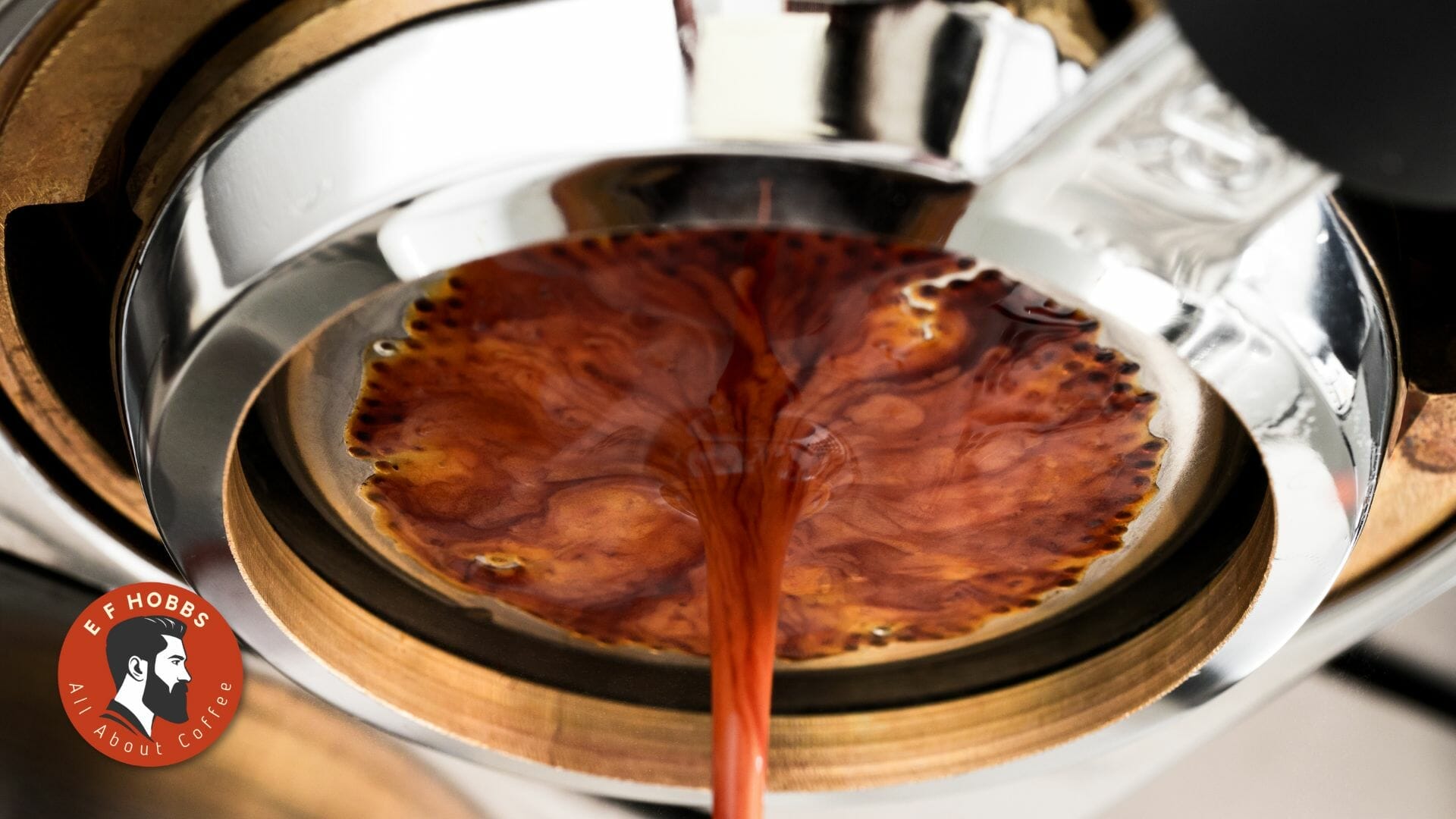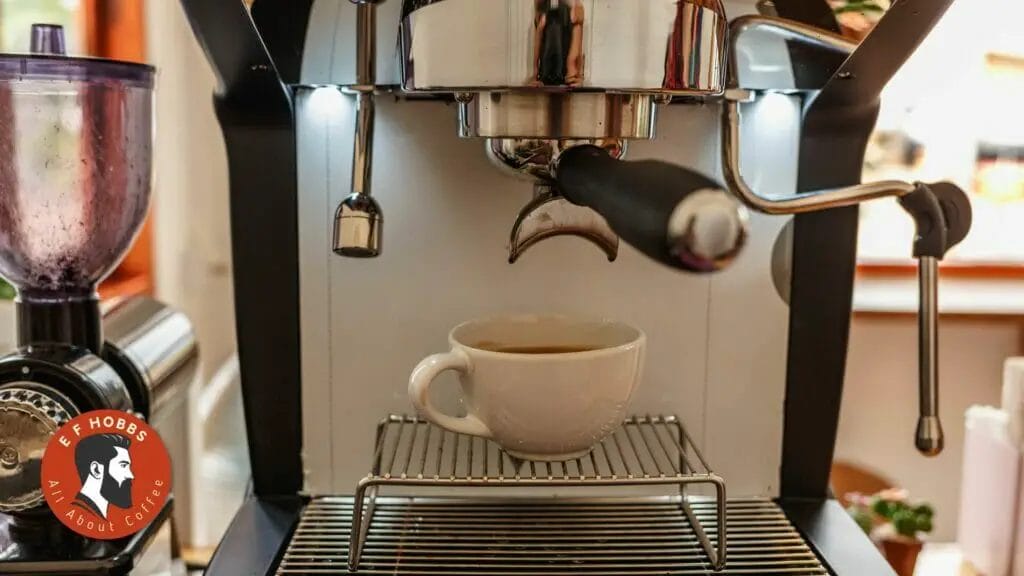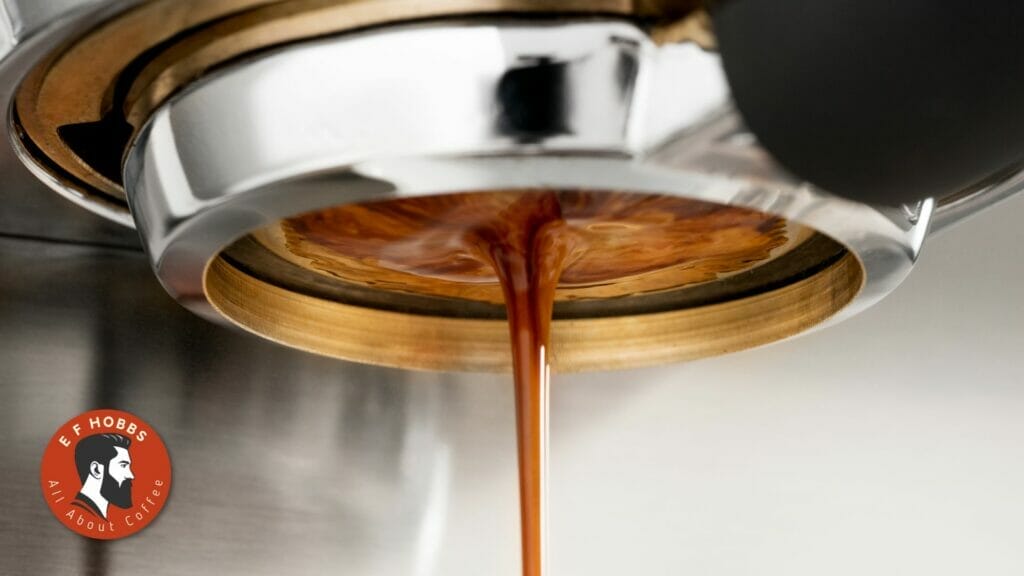What Is Over Extracted Coffee – Find Out Now!!!

Do you remember the last time you had a cup of coffee that tasted like bitter and burnt? It’s possible that the coffee was over extracted.
Over extraction happens when too much flavor is pulled from the coffee grounds, resulting in a harsh and unpleasant taste.
This is a common problem in coffee brewing, especially for those who are still learning how to make their own coffee at home.
But don’t worry! Understanding what over extraction is and how to prevent it can help you brew a delicious cup of joe every time.
In this article, we will dive into the world of over extracted coffee and its effects on flavor.
We’ll also explore causes and solutions for over extraction issues, as well as tips for experimenting with extraction to create unique flavor profiles.
So grab your favorite mug, sit back, and let’s explore the world of over extracted coffee together.
Understanding Over Extraction

You’re going to hate it when your morning brew tastes like bitter disappointment because you didn’t understand how brewing time affects the taste of your cup.
Over-extracted coffee is one of the most common mistakes made in coffee brewing, and it happens when you let water extract too much from the coffee grounds. This results in a bitter and unpleasant taste that can ruin even the best beans.
On the other end of the spectrum, under-extracted coffee is weak and lacks flavor.
So, why does over-extraction happen? It’s usually due to using too fine a grind or leaving your coffee steep for too long.
But there are also other factors that affect extraction such as water temperature, roast level, and brew method.
Understanding these variables will help you avoid over-extracted coffee and ensure that every cup tastes perfect.
Causes of Over Extraction
The reasons why coffee can taste like burnt dirt with a hint of bitterness are because the water was too hot, the grind was too fine, and the beans were ground for way too long. These factors contribute to over extracted coffee which is not enjoyable to drink.
Over extraction happens when the water extracts more flavor compounds from the coffee grounds than it should have.
When coffee beans are ground too finely, they expose more surface area to the water which leads to over extraction.
Similarly, if you let your coffee brewing process go on for too long, you’ll end up with an overly extracted cup of joe.
On the other hand, under extracted coffee occurs when there isn’t enough time or exposure for all of the flavor compounds in your coffee grounds to extract into your brewed cup.
It’s all about finding that perfect balance between not enough and too much extraction.
Now that we’ve covered what causes over extraction in detail, let’s move on to how it affects the taste of your brew.
Effects of Over Extraction on Coffee Flavor
When the brewing process goes wrong, your coffee can end up tasting like a burnt and bitter concoction that isn’t what you were hoping for.
This is often the result of over extracted coffee, which occurs when too much coffee has been extracted during brewing.
The extraction process refers to how much flavor is taken out of the coffee grounds by hot water. If it goes on for too long, it can lead to unpleasant flavors.
Here are three effects that over extraction can have on the taste of your coffee:
- Bitterness: Over extracted coffee will taste excessively bitter because all of the unpleasant compounds in the beans have been released into your cup.
- Lack of sweetness: Sweetness is an important component of a good cup of coffee, but over extraction can remove this entirely.
- Weak body: When you brew your coffee for too long, you’ll find that it lacks in body and feels thin in your mouth.
Preventing over extraction requires careful attention to detail during the brewing process.
Preventing Over Extraction
To prevent your morning cup from tasting burnt and bitter, let’s dive into some tips on how to avoid extracting too much flavor during the brewing process.
First off, you should pay close attention to the amount of coffee grounds you’re using for each serving.
Over-extraction can occur when too many coffee grounds are used, resulting in a stronger taste that’s often accompanied by unpleasant bitterness.
On the other hand, using too few coffee grounds can lead to under-extracted coffee that tastes weak and lacks character.
Another way to prevent over extracted coffee is by choosing the right brewing method for your needs.
Some methods like French press or espresso machines extract more flavors than others, such as drip brewing or pour-over techniques.
If you’re using one of these stronger brewing methods, it’s essential to measure out precisely how much ground coffee you need per serving and only brew for the recommended time frame.
By following these simple steps, you’ll be able to enjoy a perfectly brewed cup of joe without any bitter flavors ruining your experience!
Now that we’ve covered ways to prevent over extraction, let’s move onto troubleshooting over extraction issues without compromising on taste and quality.
Troubleshooting Over Extraction Issues
If you’re struggling with a bitter or burnt taste in your morning cup, it may be time to troubleshoot any issues with the brewing process. Over extracted coffee is often the culprit behind this unpleasant flavor profile.
Coffee extraction is the process of extracting soluble compounds from roasted and ground coffee beans using water.
When too many of these compounds are extracted, the resulting brew can become bitter and overpowering.
To troubleshoot over extraction issues, start by examining your brew method. Are you using a French press or pour-over method?
These methods tend to extract more coffee solids than automatic drip machines, so adjusting your grind size may help reduce bitterness.
Speaking of which, grind size also plays a crucial role in coffee extraction. Finer grinds increase surface area contact between water and coffee particles, leading to faster and more complete extraction.
Coarser grinds will lead to less complete extraction but can also result in weak-tasting coffee if not brewed correctly.
Experiment with different grind sizes until you find one that produces a balanced cup without harsh bitterness.
As you experiment with different brewing variables to adjust for over extracted coffee, keep in mind that there’s no single ‘right’ way to extract coffee flavors – it all depends on personal preference!
In the next section, we’ll explore how experimenting with different extraction parameters can help you discover unique flavor profiles and nuances in your favorite coffees.
Experimenting with Extraction for Flavor Profiling

Discover unique flavor profiles and nuances in your favorite brews by experimenting with extraction parameters. It’s like exploring a new world of taste!
Coffee beans have complex flavors that can be brought out or masked, depending on how they’re extracted.
Over extraction occurs when too much water has passed through the coffee grounds, pulling out bitter chemicals and leaving behind unpleasant flavors. However, under extraction can also result in weak and sour-tasting coffee.
To avoid over extracted coffee, try adjusting your brewing methods. For example, adjust your grind size, water temperature, and steeping time.
By tweaking these variables slightly, you can create a more balanced cup of joe that highlights the delicious notes of your chosen bean.
Flavor profiling is an exciting way to experiment with different brewing techniques and discover new ways to enjoy your coffee. So, grab some beans and start playing around – who knows what delicious concoctions you might come up with!
As fun as it is to experiment with flavor profiling, it’s important to remember the consequences of over extraction in specialty coffee.
Don’t worry though – in the next section, we’ll explore this topic further and give tips on how to prevent it from happening in your own brewing process.
Over Extraction in Specialty Coffee
Now that you’ve experimented with different extraction methods for flavor profiling, it’s time to talk about what happens when things go wrong.
Over-extracted coffee is the result of too much water passing through the coffee ground, usually due to a prolonged brew time or using an excessively fine grind. This can lead to bitterness and a dull flavor profile in your cup.
To avoid over-extracting your coffee, here are some tips:
- Use a consistent grind size.
- Pay attention to your brew time and adjust accordingly.
- Experiment with different brewing methods to find what works best for you.
- Strive for balanced extraction by adjusting water temperature and coffee-to-water ratio.
Understanding how to achieve balanced extraction will help you avoid over-extracted coffee and enjoy a delicious cup every time.
Next, let’s dive into the difference between over-extracted coffee vs under-extracted coffee.
While we’ve talked about how over-extraction can negatively impact the taste of your coffee, under-extraction presents its own challenges as well.
Over Extracted Coffee vs. Under Extracted Coffee
When your brew time or grind size isn’t quite right, you might end up with a cup that’s lacking in flavor or tastes too bitter.
It’s important to understand the difference between under and over extraction so you can adjust accordingly.
Over extracted coffee is when hot water has been in contact with the ground beans for too long, resulting in a bitter taste.
This can happen when using brewing methods such as French press, where the coffee grounds are left sitting in the water for an extended period of time.
On the other hand, under extracted coffee occurs when not enough flavor is extracted from the beans due to things like insufficient brewing times or grind sizes that are too coarse. This can result in a sour taste and lack of body.
It’s important to find a balance between over and under extraction to achieve optimal flavors and acidity levels in your cup of coffee. With practice and experimentation, you’ll be able to find what works best for your individual preferences.
FAQs
Conclusion
Congratulations! You now have the knowledge and tools to prevent over-extraction in your coffee brewing process.
Remember, just like a chef who balances flavors in a dish, you can balance the taste of your coffee by experimenting with extraction times and ratios.
Think of it this way: making coffee is like playing music. Just as a musician must tune their instrument to produce harmonious notes, you must fine-tune your brewing technique to achieve the perfect cup.
Don’t be afraid to experiment and find your unique flavor profile. And if you do encounter an over-extracted batch, don’t fret – use our troubleshooting tips to fix it.
With these tips in mind, go forth and brew delicious coffee that will impress even the most discerning palates. Happy brewing!
